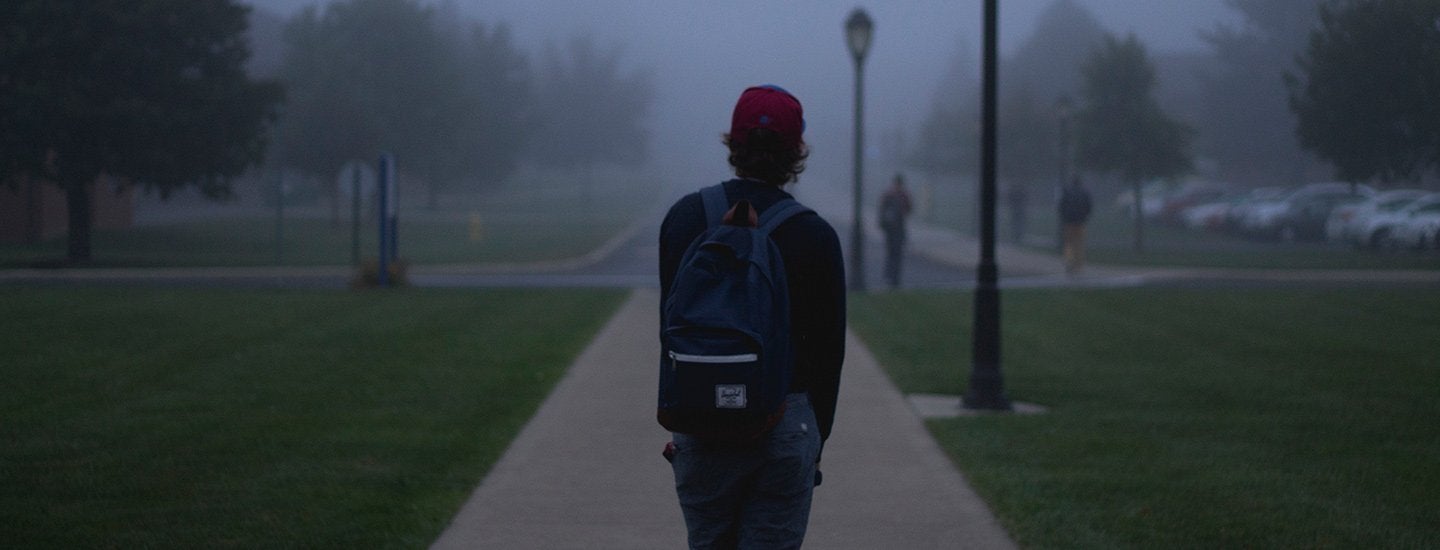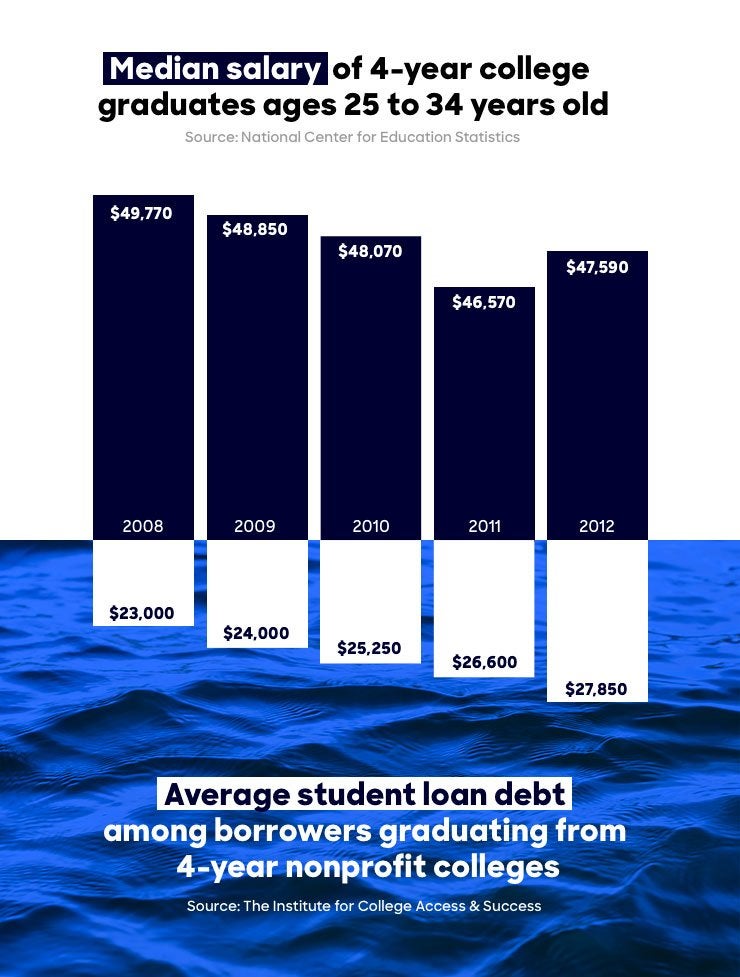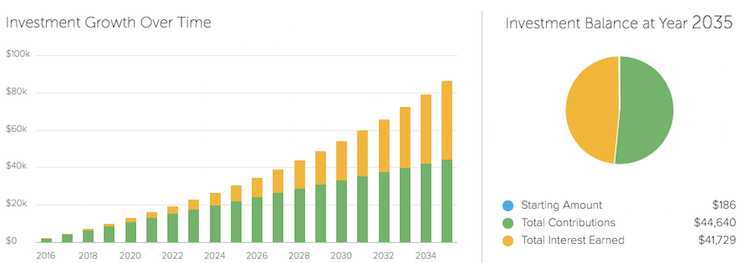
Hillary Clinton Campaign Press Release - How Much Could You Save For Retirement If You Weren't Paying Off Student Loans?

That money really adds up.
College is a great investment—for individual students and for our economy. But it's also a severe expense that holds many Americans back well into adulthood.
About 70 percent of college graduates take out loans to finance their education. Across the country, Americans hold a staggering $1.2 trillion in student debt—the second highest source of consumer debt behind home mortgages. And that number continues to climb.

The graduating class of 2016 is slated to be the most indebted in U.S. history—and loan balances are disproportionately high for low-income students, including students of color.
So how does student debt really affect your bottom line in the long run? It's more than you might expect.
Among the class of 2014, the average undergraduate who took out loans borrowed just over $28,950. Paid back over 20 years at the unsubsidized federal loan rate, he or she would owe $186.00 per month.
Those payments—every month for two decades—really add up.
For instance:
If you put that money in a savings account, you'd have more than $11,000 saved in just five years.
If you invested that money in a mutual fund for 10 years, you could bank more than $27,000.
And if you put all of those monthly payments in a 401(k), you could have?$86,000 put aside for retirement in 20 years.

Source: smartasset.com (Assumes a 6% annual rate of return)
Studies suggest that student debt is holding back young people from life milestones like getting married, buying homes, having children, and starting small businesses.
And according to a 2013 study by the think tank Demos, college-educated households with student debt stand to lose $208,000 over a lifetime, mostly from a lack of retirement savings.
Education should hold the key to a brighter future—not a lifetime of debilitating debt.
That's why Hillary Clinton has released a plan for debt-free college. Under her plan, students won't have to take out loans to pay for tuition, books, or fees at four-year public colleges and universities in their states. Families will make an affordable, realistic contribution and students will do their part by working 10 hours a week to help pay for school.
Those with existing student debt will be able to refinance at a lower rate, which will give debt relief to an estimated 25 million borrowers. And Hillary's plan will allow everyone to enroll in an income-based repayment plan so that they're never spending more than 10 percent of their income on student loans.
" We need to make a quality education affordable and available to everyone willing to work for it, without saddling them with decades of debt."Hillary, August 10, 2015
Read more about how Hillary's college plan could help you or someone you know.
Related Images
Hillary Clinton, Hillary Clinton Campaign Press Release - How Much Could You Save For Retirement If You Weren't Paying Off Student Loans? Online by Gerhard Peters and John T. Woolley, The American Presidency Project https://www.presidency.ucsb.edu/node/316872
